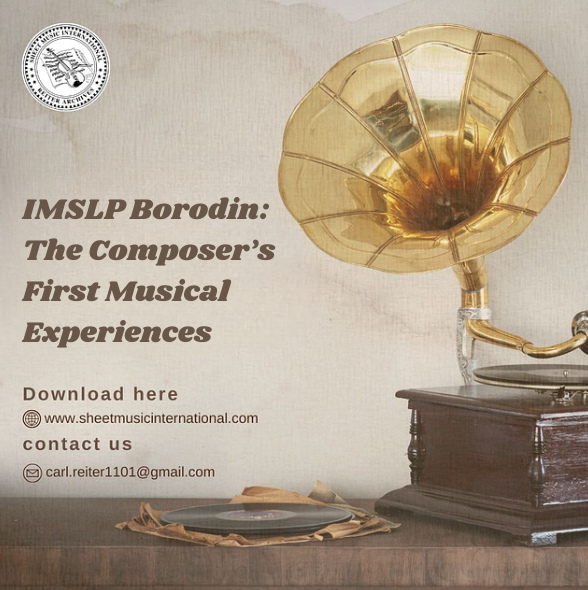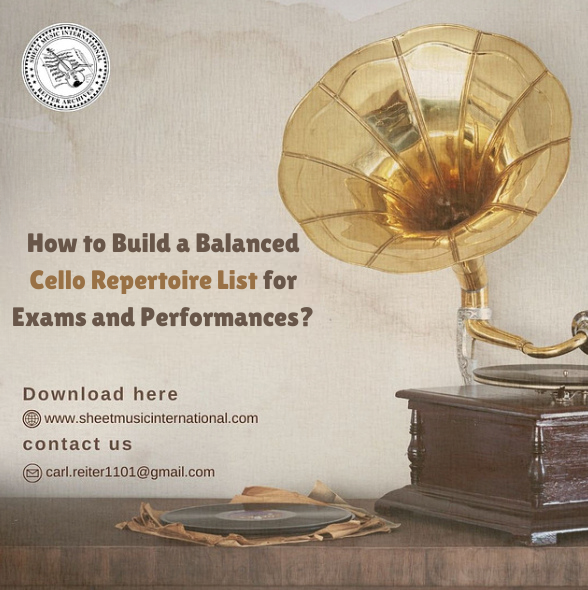
Your Request is under process, Please wait.


Music buffs find the IMSLP Borodin digital library a perfect destination to enjoy the timeless magic of classical musical pieces.
Music buffs find the IMSLP Borodin digital library a perfect destination to enjoy the timeless magic of classical musical pieces. Old compositions created by Borodin are beyond description, and their value doesn’t decrease with the passage of time.
The young generation of music lovers not only can enjoy classical musical compositions from this virtual library, but they can also become creative by having inspiration from such masterpieces.
So, if you are a fan of Borodin and wish to appreciate the musical works composed by the legend in the best possible way, you must learn about his life.
The better you know what he went through, the more emotionally you can relate to his masterpieces, which will facilitate your complete appreciation.
Alexander Borodin was born on 12 November 1833 in St. Petersburg, which is the second largest city in Russia. He came from noble ancestry. Borodin was the illegitimate son of the Georgian Prince, Luka Stepanovich Gedevanishvili, and a Russian woman, Evdokia Konstantinovna Antonova. As a part of the custom prevalent at that time, the nobleman got his son registered as the son of one of his Russian serfs, whose name was Porfiry Borodin.
The first trustworthy information about young Borodin available to us dates from nearly 1840. As much as we know, he was a sickly and emotional but adorable child. Borodin was said to be ‘a wonderful child’, charming to look at, but of an unusually calm temperament.
From his childhood days, signs of his musical talent had been visible, and the composer pretended to be an organ grinder while improvising stage plays for his mother. Borodin’s first composition was written when he was nine, which was a polka for piano titled, “Hélène”. You can find it in the IMSLP Borodin digital library.
Once his family had moved to a new house close to a Regiment’s parade ground, Borodin used to listen to the spellbound to the regimental band. In fact, he indulged in picking out the tunes at the piano at home. When his mother noticed his interest, she hired a flutist to provide Borodin with flute lessons. After that, he took piano lessons from Pormann, a German musician.
Biographers regarded Borodin as a dedicated and patient man. However, he was considered not very sensible if it was about teaching.
Borodin’s mother had given a warm welcome to a boarder, Mikhail Shchiglev, who was musically talented and nearly Borodin’s age. Both of these boys indulged in playing piano duets and four-hand arrangements of symphonies by Beethoven, Haydn (Haydn’s masterpieces are available at the IMSLP Haydn virtual library of music compositions), and Mendelssohn. They both also went to the university’s concerts in the winter season and travelled to the suburb of Pavlovsk to hear a dance orchestra of the Hungarian conductor and composer Johann Gungl. Borodin taught himself to play the cello, and Shchiglev taught himself to play the violin.
Borodin prepared many string compositions and wrote salon music. The ‘Adagio Patetico’ was published in 1849 and received positive reviews.
Before he tried his hand at musical composition, Borodin had a passion for chemistry. He first tried to make fireworks. However, it quickly became a serious occupation. According to a biographer, when Borodin was nearly 13 or 14, he had set up a complete lab at home for himself.
Before the age of 17 in 1850, Borodin entered St Petersburg’s Medical-Surgical Academy, which was the training ground for physicians in the tsar’s service.
The composer is highly famous for his 3 symphonies, 2 string quintets, and his opera Prince Igor, available at the IMSLP Borodin virtual library. He started composing Prince Igor in 1869, and it took him 18 years to work on it.
Before Borodin died in 1887, Rimsky-Korsakov helped him orchestrate Polovtsian Dances, which is a selection from Prince Igor, to enable it to be performed as a ‘stand-alone’ concert piece.
Polovtsian Dances, which is very famous like Shostakovich Waltz 2, is frequently performed across the world. Prince Igor was not complete at the time of Borodin’s demise. Parts of the opera were revised, and the composers Rimsky-Korsakov and Glazunov completed it.
Most of Borodin’s compositions were incomplete and got lost because he was a part-time composer. He died of heart failure in 1887 and was buried in St. Petersburg.
Music freaks can seek inspiration from Borodin’s famous classical compositions at the IMSLP Borodin digital library, which is a library of public-domain music scores, recordings, etc.
Some of the famous musical compositions by Borodin are Prince Igor, Polovtsian Dances, a couple of symphonies, etc.


.png)
.png)





